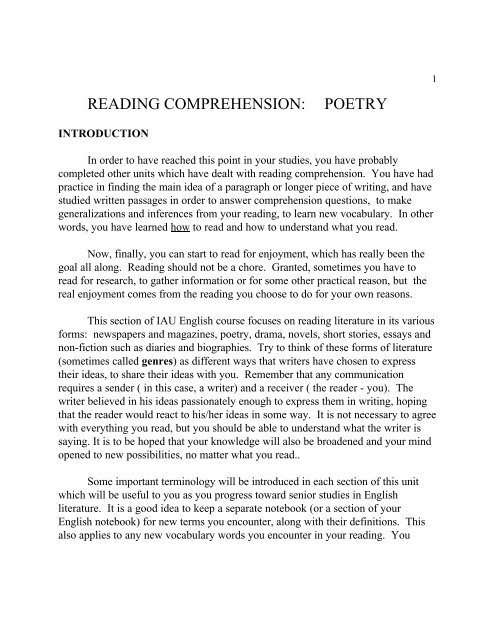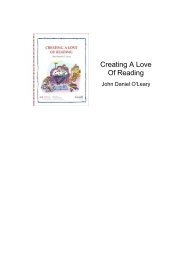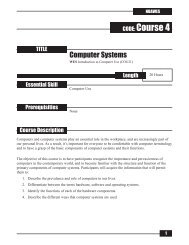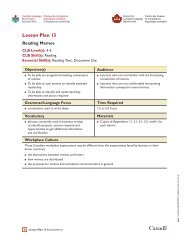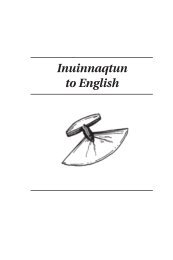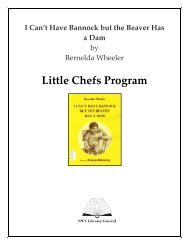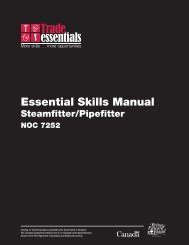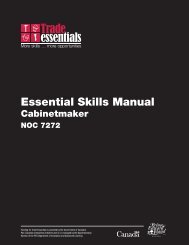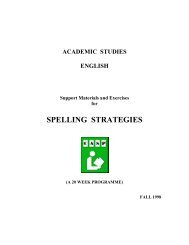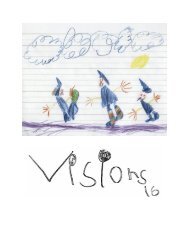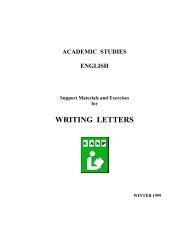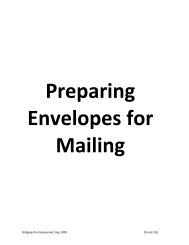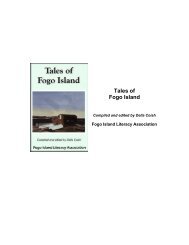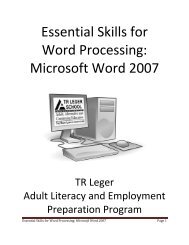PART A : POETRY - National Adult Literacy Database
PART A : POETRY - National Adult Literacy Database
PART A : POETRY - National Adult Literacy Database
Create successful ePaper yourself
Turn your PDF publications into a flip-book with our unique Google optimized e-Paper software.
1<br />
READING COMPREHENSION: <strong>POETRY</strong><br />
INTRODUCTION<br />
In order to have reached this point in your studies, you have probably<br />
completed other units which have dealt with reading comprehension. You have had<br />
practice in finding the main idea of a paragraph or longer piece of writing, and have<br />
studied written passages in order to answer comprehension questions, to make<br />
generalizations and inferences from your reading, to learn new vocabulary. In other<br />
words, you have learned how to read and how to understand what you read.<br />
Now, finally, you can start to read for enjoyment, which has really been the<br />
goal all along. Reading should not be a chore. Granted, sometimes you have to<br />
read for research, to gather information or for some other practical reason, but the<br />
real enjoyment comes from the reading you choose to do for your own reasons.<br />
This section of IAU English course focuses on reading literature in its various<br />
forms: newspapers and magazines, poetry, drama, novels, short stories, essays and<br />
non-fiction such as diaries and biographies. Try to think of these forms of literature<br />
(sometimes called genres) as different ways that writers have chosen to express<br />
their ideas, to share their ideas with you. Remember that any communication<br />
requires a sender ( in this case, a writer) and a receiver ( the reader - you). The<br />
writer believed in his ideas passionately enough to express them in writing, hoping<br />
that the reader would react to his/her ideas in some way. It is not necessary to agree<br />
with everything you read, but you should be able to understand what the writer is<br />
saying. It is to be hoped that your knowledge will also be broadened and your mind<br />
opened to new possibilities, no matter what you read..<br />
Some important terminology will be introduced in each section of this unit<br />
which will be useful to you as you progress toward senior studies in English<br />
literature. It is a good idea to keep a separate notebook (or a section of your<br />
English notebook) for new terms you encounter, along with their definitions. This<br />
also applies to any new vocabulary words you encounter in your reading. You


